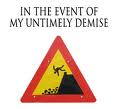 Laura Dawson of LJNDawson.com seems to think that Borders is not going to make it. In that event, what’s the fallout?
Laura Dawson of LJNDawson.com seems to think that Borders is not going to make it. In that event, what’s the fallout?
Well, Dawson, and industry consultant, feels that it will be a boost for ebooks:
So in approximately a third of areas previously served by large chains, customers will become quickly accustomed to ordering books online.
How long do you think it will be before they realize that if they order ebooks, they don’t have to wait even 24 hours before they get what they want? How long do you think it will be before instant gratification means that suddenly these underserved areas are hotbeds of ebook consumption?
We’ve seen this sort of leapfrogging happen in underdeveloped areas before – that is why residents of certain African and Asian countries are so wedded to their cell phones; they skipped the land-line process altogether.
We’ve seen it happen in the music industry as well – when was the last time you went into a store where the primary stock was CDs? A Virgin or an HMV or a Tower? Or, heaven help you, your local indie music store?
We are seeing it happen in video. I live in New York City – there used to be video stores every few blocks, staffed by amazing kids from NYU or Columbia; those Quentin Tarantino-breeding environments are gone. We get our movies from Netflix. We get our movies on demand from Time-Warner. We get our movies streamed through our laptops directly to our TVs.
That leapfrogging in the book business is going to happen primarily in rural and suburban areas where intellectual life was always underserved. That is where it will start. And once that convenience of immediate delivery of digital books is realized, it is only a matter of time before we see that the bookstores we treasure have to offer more than just books if they want to attract customers. Books are commodities – and they will become increasingly more commoditized as Google Editions launches, as Kobo develops device-independent platforms, as Overdrive adds more titles to its Content Reserve service.


































I’ve been living at my current address for… (ahem)… a long time…
One of the attractions (besides being 3 miles from work) was being a block away from a honking big Mall with both a WaldenBooks and a B. Dalton. About ten minutes away was one of those legendary family-owned indie bookstores; they had (it seemed) every magazine in print and rack upon rack of paperbacks and what they didn’t have they could get in a couple of weeks.
Then a Borders opened up about 15 minutes away…
…bye-bye indie bookstore.
I was sad to see them go but those volume discounts the publishers gave Borders were just deadly.
Then the WaldenBooks doubled in sized and the B. Dalton closed.
About two years ago B&N opened up a block from the Borders.
But by then Amazon had come in and they had *everything*; they delivered straight to my door in a day or two and they even tracked my orders and offered up similar stuff. Plus *their* volume discounts from the publishers were humongous. Better service and lower prices? If the big publishers were behind Amazon, why shouldn’t I go with them?
When I go by, the WaldenBooks is usually almost empty but still somehow holding on inside the Mall; Borders is no longer packed and neither is the new B&N. Most of the action seems to be in the coffee shop area…
Not sure how any of the three is holding up financially but then, I haven’t bought a thing from either in three years. This time, if/when any or all of them closes up, I probably won’t notice.
I certainly didn’t notice when the last Blockbusters in the area closed(once there were five within a ten minute radius).
Times change and so has the market. And the publishers that once actively promoted consolidation with ever larger discounts are now trying to end discounting altogether…right when they are running out of B&M retailers and online availability of competitive content is exploding.
They were clueless then and they remain clueless today.
When I first went to Italy I was struck by the fact that everyone had cellphones – nuns, grandmothers, business people.
The reason – land lines were expensive and the wait to get them was phenomenally long.
When offered an alternative that makes life easier and is cheaper, people will move.
Ahem, Felix! And that sort of decline of indie book stores, chain bookstores, video stores and “record” stores is equally seen in Canada and in Toronto.
It’s not just that Amazon is a very customer-centric company that had made the right bets and executed very well — it’s also had the “vision” to stay with customers or even be slightly ahead by launching a personalized “ebook receiver” and recommendation that produces highly relevant results. And when things go wrong, finger pointing is not in Amazon’s DNA: they just fix the problem figuring the cost to smooth the feathers of a customer is much cheaper than all the ill will the disgruntled can spread.
In fact, it’s pretty hard to find any other company that does what Amazon does as for its customers. And, may I add, without the endless hype we hear from certain other brands.
I don’t really think that books will become a commodity; I mean, they already are. What will happen is that text-based media will be divorced from physical artifacts, in the same way that audio media (music) has been. The “printed physical book” will become a luxury item; we’ll see a lot more “illustrated edition” and “author’s edition” and “limited edition” hardcovers, and very few paperbacks of any sort.
I agree that this scenario is all too likely.
I love my local Borders (“local” being the only one within 60 hours…the next nearest big bookstore is Burlington, VT, two hours away). My wife and I love to go and hang out in the cafe and browse…and while we don’t always buy something, once the purse strings have opened, we tend to walk out with an armful of books.
But I think Borders and B&N are inevitably going to struggle. Most Borders have been cut to the bone inventory wise, so it’s hard to find what you *really* want in many cases…whereas Amazon will ship it to you and offer a great price. Because of the limited stock, the serendipity of stumbling across something unexpectedly wonderful is greatly reduced than what I used to find in the past.
I believe Borders and B&N could shore up their fortunes by spending resources to make their stores a local “readers’ community,” a destination for book-sy people to hang out and socialize.
Those new printers that can print books on demand within a few minutes have a lot of potential if they can get publishers onboard — you can browse on Amazon or any other site, find the book you really want and have it custom printed for you at the store in a few minutes. That levels the playing field with the online retailers: no more waiting days for a physical book and people will pay a premium for that.
I think the move to ebooks is just flat-out inevitable because of the convenience and cost advantage.
I grew up in a very small rural town and still live there — this is the first time that I’ve been able to get immediate access to exactly the media I wanted instead of having to make due with what was offered in local supermarkets, which wasn’t much.
I thought the Borders stores *were* supposed to be local readers’ destination from the beginning. Wasn’t that the point of the coffee-shop atmosphere?
I don’t doubt they’ve cut to the bone but their problem (and B&N’s) is that they *can’t* cut out the single largest cost center in their operations: the buildings. If they should go under, its likely the last thing to go will be the very thing that once gave them a purpose; the monster buildings.
Felix:
The coffee-shop is what makes you want to hang out at Borders and B&N…and it’s why my wife and I go “camping” there on quite a few weekends.
But stores are missing opportunities to actively encourage “community.” Things like hosting readers groups, doing more public events, hosting themed events–I remember Harry Potter debut nights as being huge draws for the Borders in York, PA when we lived there. The bookstores need to create more of these moments to intimately connect the concept of reading and their store in the customers’ minds.
I know, for example, quite a few of the chain stores don’t want to have self-pubbed authors speak but there is an opportunity to draw in foot traffic, sell the books on consignment before and during the event.
Give the local managers the flexibility to do what works in their community rather than “top-down” corporate management that penalizes innovation and experimentation.
But yeah, all of that floor space is a huge liability that is not going to bring in the revenue they need to survive.
The idealist in me sees a really cool alternative arriving as the tech improves:
1) Smaller stores. The coffee-shop will be the core of the store with a decent-sized book section for browsing.
2) The print-on-demand printers allow people to buy any book they want instantly even if it’s not “in stock” at the store. Again, this presumes the publishers and retailers decide to work together — but why not? The publishers get the cash (and higher margins on P-books) without the cost of shipping, printing and warehousing. The retailer has the convenience of guaranteed sales only, so no returns.
3) Focus on electronic book browsing, via rental/lease Ereaders/IPads hooked up to the stores site, which MUST include the equivalent of Amazon’s “look inside this book” system. Potential customers need to be able to browse quite a bit to be certain they want the book — we’re seeing the beginning of that with the Nook’s “Read in the store” feature.
They’re not going to be able to stop the loss of sales to online retailers — they’re just too cost-effective and can undercut brick-and-mortar stores — but people do tend to pay a premium for:
1) a great experience/community — they come to have fun, good food, good conversation, engaging events, and happen to pick up a few books while they are there. The stores need to create the sense that “if you’re not coming to our store, you are missing out!”
2) being able to get exactly what they want right now — I don’t think the convenience and tactile reward of a physical book is going to go away; people still like the heft of having a physical book.
Brings up the question: is Borders a coffee shop that sells books or a bookstore with a coffee shop? 😉
There’s going to be room in the market for printed books for quite a while. The question is, as the economies of scale fade, what will it do to pricing? Cause trying to overcharge for ebooks to prop up the p-editions isn’t going to work not when the price-fixed books are going to have to compete with pure ebooks that aren’t priced with a boat anchor attached.
Thinking back, to the old days, I’m wondering if maybe the smaller-sized B.Dalton Mall Stores might not be the better model for the new age. Build the place around a p-on-demand unit in the back and a bunch of kiosks to serve as shelf-space. Throw in a coffee shop (or a Cinnabons) to drive traffic with a B&N style onsite WiFi feed…
Hey, it might work!
A “readers’ community” sounds like some kind of romantic notion to me. Where’s the profit that’s going to sustain the cost of running the store?
The last time I bought a physical book at a physical bookstore was when Borders was closing one of their stores and I picked up a 40%-off closeout deal on a mass-market paperback. Otherwise, I’ve been buying print books online for a number of years, and now I’ve switched to e-books.
If I were to go to a bookstore for the “coffeehouse” experience, it wouldn’t be to buy books. Where’s the profit? What makes a bookstore coffeehouse so much different from a Starbucks as to make people travel the extra distance?
Amazon is now getting about the same revenue from EGM (electronics and general merchandise) as from books and other media, and EGM is growing faster than media. Barnes & Noble is shifting its store emphasis away from books to a wider variety of merchandise, and is using a number of promotional programs to get NOOK owners to come into the stores occasionally.
The Barnes & Noble stores near me have removed most of their seating, to keep people from hanging out in the stores. A group that I’m in meets in a Borders store, and every time they get a new manager (which seems to be monthly) the new manager tries to kick us out. Big-box bookstore operators don’t seem to see any value in people hanging out or holding meetings in their stores. They want sales.
Felix:
I agree…I think the old Waldenbooks/B Dalton model of smaller stores, with the on-demand printer and the Cinnabons’ style cafe, is going to be the only way to survive.
I see the stores as being more cafe/newsstand with a moderate book section.
Doug said:
“If I were to go to a bookstore for the “coffeehouse” experience, it wouldn’t be to buy books. Where’s the profit? What makes a bookstore coffeehouse so much different from a Starbucks as to make people travel the extra distance?”
The advantage of the cafe in the bookstore is that people hang out in the cafe and that might entice them to buy books. Starbucks is great if all you want to do is have a coffee. The idea is hang out in the cafe for a leisurely couple of hours, browse some cool books and then buy a few.
I don’t necessarily think it is a winning strategy…but it’s better than doing nothing. It is a smaller margin strategy, that is for sure…but smaller margins are unavoidable.
I do think the retail stores are fighting a losing battle. B&N with more general merchandise? I see that eroding the store’s identity — I believe that one of the big problems for Borders was trying to do books … and music … and DVDs…but they couldn’t be competitive in music and DVDs. Books just aren’t as competitive a market.
Doug continued:
“The Barnes & Noble stores near me have removed most of their seating, to keep people from hanging out in the stores. A group that I’m in meets in a Borders store, and every time they get a new manager (which seems to be monthly) the new manager tries to kick us out.”
And that will be the death knell for these stores. If I’m not welcome to hang out, then why precisely would I bother to go to Borders/B&N when I can buy faster, easier and cheaper online?
In the end, I believe Amazon and online will win. The question is by how much and how long will it take.
What is the purpose of a modern bookstore? Isn’t that the real question here?
The old mall niche stores relied on mall traffic, hoping to pique people’s interest to get them to stop by, take a look, and (if they were readers) pick up a few impulse buys.
The big-building superstores turned a trip to the bookstore into an event; you went with the *intent* to buy something. There was so much to consider only the strongest-willed could walk in and leave without buying.
Nowadays, however, anybody with book-buying intent can just simply go online.
In the old days, the only books discounted significantly were closeouts. Then the superstores got people used to the idea that books *could* be discounted. That opened the door to WalMart, Target, and the online vendors who can and will live off thinner margins.
Times have changed, buying habits have changed and the same superstores that helped make those changes are now faced with a customer environment where their strengths of old (large storefront, large inventory) are the weaknesses of today (large storefronts and large inventories are expensive) when compared to todays competitors, whether the bestseller-focused WalMart and Target who offer the same B&M bestseller experience at a lower price or the online guys who have deeper inventories and lower prices.
And that is before factoring ebooks.
Basically, the superstores are losing entire markets; the bestseller-focused B&M buyers are going to the discount chains. The Tech-savvy crowd is going to ebooks. What remains? Total luddites who won’t buy even print books online? Nostalgic passersby?
The coffehouse approach probably won’t help. But what options remain? Print book sales are no longer a market that can sustain book-only megastores.
The discount genie is out of the bottle and price fixing isn’t going to help. Even if everybody’s prices were forced to equality, too many people have gotten out of the habit of going to the big bookstore to see what’s new. Too many people have PCs, too many people have smartphones, too many people have apps that let them look up Amazon or Kindle pricing right inside the bookstore. (And ACER is showing an ebook reader with a built-in scanner to add insult to injury.)
The superstore chain *may* survive; I’m not sure they’re totally doomed. But they need a new business model and so far I’m not seeing it.
What *is* the purpose of the modern bookstore?